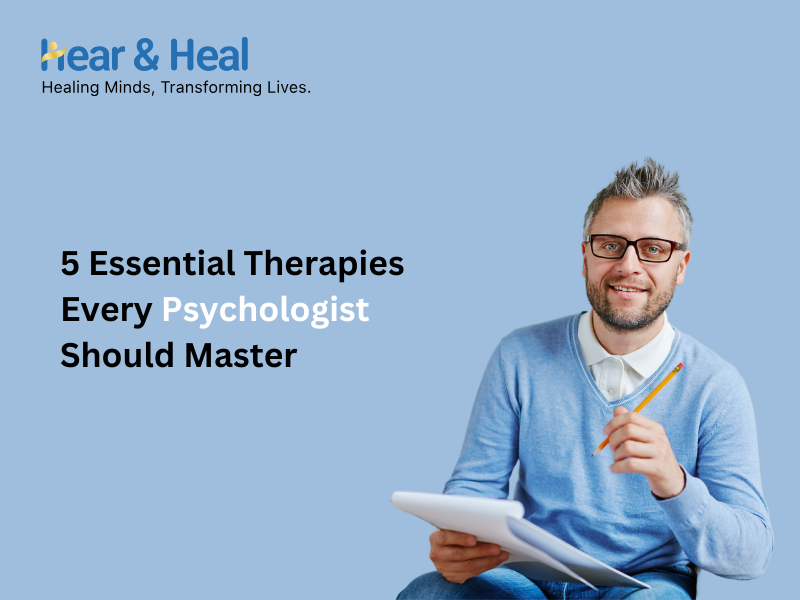














In the ever-evolving field of psychology, staying ahead means mastering therapeutic practices that deliver real results. Whether you’re starting out or looking to sharpen your skills, these evidence-based therapies form the backbone of impactful psychological care. By mastering them, you can create lasting change in your client’s lives and build a thriving practice.
This blog explains 5 essential therapies every psychologist should master to provide effective and impactful care.
Evidence-based therapeutic practices are the cornerstone of successful psychotherapy. These approaches ensure that treatment methods are backed by scientific research and proven effectiveness. By mastering these core psychological therapies, psychologists can better address diverse client needs and navigate complex cases with confidence.
Understanding the core principles of multiple therapeutic approaches allows psychologists to tailor treatment plans to meet each client’s unique needs. Here are five therapies that every psychologist should prioritise mastering:
CBT is a structured, goal-oriented therapy that focuses on identifying and changing negative thought patterns and behaviours.
Real-life example: A person with social anxiety might use CBT to challenge their fear of judgment by identifying distorted beliefs, practising confidence-building techniques, and gradually exposing themselves to social situations.
DBT emphasises emotional regulation, mindfulness, and interpersonal effectiveness.
Real-life example: A client prone to emotional outbursts might use DBT’s mindfulness techniques to pause, assess their feelings, and choose a more constructive response during conflict.
PCT is a humanistic approach focusing on the client-therapist relationship.
Real-life example: A young adult struggling with self-esteem issues might benefit from PCT by feeling heard and validated, which can help them rebuild their confidence and discover their inner strengths.
ACT helps clients embrace their thoughts and feelings rather than fighting or avoiding them. It focuses on psychological flexibility and value-driven behaviour.
Real-life example: A client overwhelmed by fear of failure might use ACT to accept their feelings, identify their values (e.g., personal growth), and take small steps toward their goals without being held back by self-doubt.
MBCT combines mindfulness practices with cognitive therapy to help clients prevent relapse into depression and manage stress.
Real-life example: A client with recurrent depression might use MBCT to recognise early signs of depressive thinking and counteract them with mindfulness practices, preventing a full relapse.
Combining elements from these five therapies allows psychologists to create personalised treatment plans customised per individual client needs.
For instance: A psychologist working with a client experiencing anxiety might integrate CBT’s cognitive restructuring techniques with DBT’s mindfulness practices to address both thought patterns and emotional regulation.
This flexibility in blending approaches ensures better outcomes and fosters a deeper connection between the psychologist and their clients.
Mastering essential therapies like CBT, DBT, PCT, ACT, and MBCT is crucial for psychologists striving to deliver effective, evidence-based treatments. These therapies provide the foundation for addressing diverse client needs, improving outcomes, and fostering meaningful connections in therapy.
At Hear & Heal, we’re here to support you every step of the way. Whether you’re a budding psychologist or a seasoned professional, our resources and training programs are designed to help you refine your skills and enhance your practice.